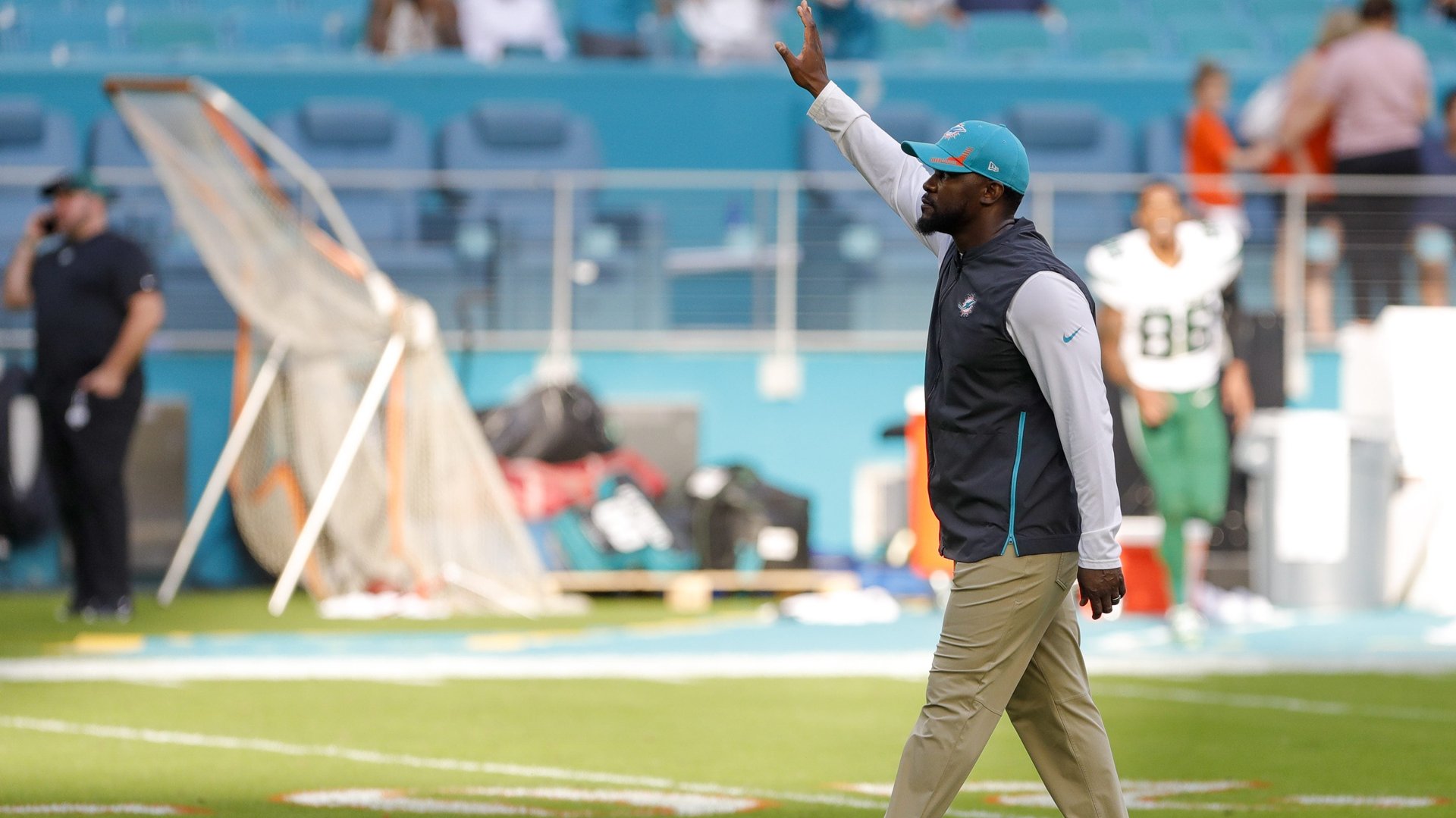The Brian Flores lawsuit highlights the Rooney Rule’s failures across industries
Former Miami Dolphins coach Brian Flores sued the National Football League (NFL) and its teams on Feb. 1, alleging they engaged in discriminatory hiring practices against him and other Black coaches.


Former Miami Dolphins coach Brian Flores sued the National Football League (NFL) and its teams on Feb. 1, alleging they engaged in discriminatory hiring practices against him and other Black coaches.
Flores’s complaint (pdf) focuses in part on the failures of the Rooney Rule, a policy established in 2003 that requires the NFL to consider minority candidates for head coach positions and other senior management jobs with the league.
Other industries have similar policies, but there isn’t strong evidence that they’ve been successful. The Flores lawsuit highlights the fact that junior minority talent faces a hard road to leadership roles across numerous sectors.
What the Flores complaint alleges
Flores says NFL management doesn’t conduct interviews with minority candidates in good faith, which in turn “creates a stigma that interviews of Black candidates are only being done to comply with the Rooney Rule.” It’s a token gesture, in other words.
Flores cites two examples from his own experience as a coach: Last week he was allegedly informed by New England Patriots coach Bill Belichick that the New York Giants planned to offer a head coaching position to Brian Daboll, a white candidate, before Flores even interviewed for the job.
In another example, Flores was scheduled to interview for a coaching position with the Denver Broncos in 2019, only to have team executives show up an hour late. Their behavior, the complaint alleges, made clear they were only interviewing Flores because of the Rooney Rule, and “never had any intention to consider him as a legitimate candidate for the job.” A white candidate was ultimately hired for the position.
There is only one Black head coach in the NFL, the complaint notes as evidence the Rooney rule isn’t working. In the years since the Rooney Rule was passed, only 11% of head coach positions have been filled by Black candidates, even though the majority of NFL players are Black.
How the Rooney Rule fails
Many companies have adopted versions of the Rooney Rule to improve their own diversity. Some of the biggest, such as Amazon and Uber, say they want more women and minority candidates coming through. (Quartz, too.)
But it’s not clear if these policies work. A 2016 study published by Harvard Business Review found that if a job applicant is the sole woman or person of color in a candidate pool, they have virtually no chance of being hired. This can change if two or more diverse candidates are interviewed, though, according to follow-up research looking specifically at hiring in the NFL.
Silicon Valley, like the NFL, still struggles to recruit more diverse candidates, and executive leadership at many major tech firms remains overwhelmingly white. Some of the biggest stars in entertainment are people of color; music and movie executives are mostly not.
Civil rights attorney Cyrus Mehri, who helped create the Rooney Rule, told Bloomberg Law the policy “requires good-faith implementation” to actually work. “The rule has to have teeth.”